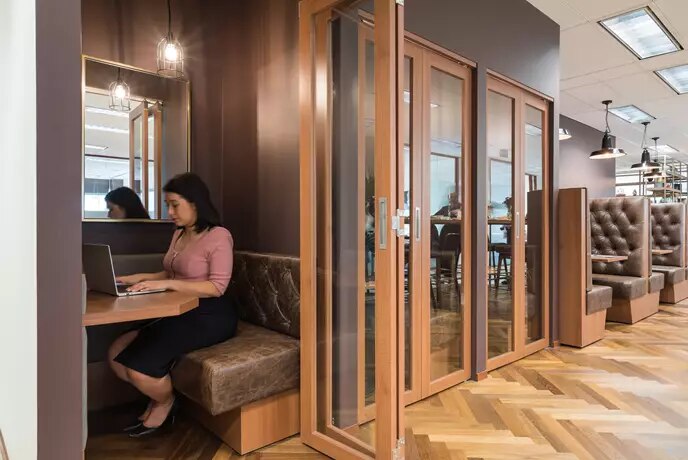
COVID-19 lockdowns and government restrictions have pushed tens of millions worldwide to work from home, accelerating a remote working experiment that had been struggling to catch on for more than a decade. In the process, it’s broken cultural and technological barriers to working beyond the office, structurally changing how many of us work, perhaps forever.
The benefits from moving from an office-as-factory model to remote working are clear: no longer being required to co-locate with peers, more flexible hours, and reduced commuting times leads to increases in business agility, independent work, productivity, and better work-life balance.
Remote working potentially allows companies to reduce their infrastructure overheads and increase access to the best talent from anywhere in the world. It’s allowed a Darwinian business model to come into play—those with better talent and decreased costs will win out over their competition.
A recent KPMG study[1] shows 21% of CEOs are now planning to downsize physical office space (or have already done so) because of the pandemic and changing working habits. Another 51% will consider shared office spaces or flexspaces for increased flexibility, and 42% want to hire predominately remote talent.
Similarly, a Gartner, Inc. survey[2] discovered nearly 3 in 4 CEOs plan to move at least 5% of their employees to permanent remote work positions
Will the remote work trend continue post-pandemic?
A recent McKinsey report suggests some answers.[3] The research firm analysed the potential for remote work in 2000 activities across 800 occupations and 9 countries, including China, France, Germany, India, Japan, Mexico, Spain, the UK, and the US.
Here are McKinsey’s findings:
- Over 20% of the global workforce are just as effective working remotely three to five days a week as in an office. That means almost four times as many people could work from home than pre-pandemic, profoundly affecting urban economies, transportation, and consumer spending.
The potential for remote work varies by sector, occupation, and activity mix. Business and financial services have the highest potential for remote work without losing pre-pandemic levels of productivity.
- For sectors experiencing diminished productivity, a hybrid office or mix of remote and office work could be helpful in the future.
Are remote workers more productive?
Ultimately, this, more than anything, may determine remote work’s popularity, post-pandemic. McKinsey’s study results were inconclusive:
- 41% of employees said they were more productive working remotely, but this number increases as employees gain confidence working beyond the office.
- Lack of connectivity impedes productivity. While Stanford University research found fewer than 65% of Americans had the internet speeds to support video calls, adequate digital infrastructure can be almost non-existent in many developing countries.
- 37% of US employees can work remotely or a hybrid of office and remote work without affecting productivity.
- Developing economies lag behind the rest of the world. Just 5% of the Indian workforce has access to technologies that enable remote work.
- Remote work is a mixed blessing for women. Globally, healthcare, food services, and customer service feature a higher female workforce, have low remote work potential and are most negatively affected by COVID-19.
What does this mean for the future of workspaces?
Coworking spaces or remote team management packages are coming into play for many businesses looking to manage a mix of office and remote workers.
They’re the perfect solution for keeping remote teams connected by giving them everything they need to succeed while supporting them to do their best work, including delivering:
- Fast & secure WiFi
- Secure printing
- In-house IT support
- World-class technology infrastructure
- Professional secretarial and receptionist services
- Access to 5-star coworking & office spaces worldwide.
- Online resources and community.
Find out more about flexspace solutions for remote work in our follow up article, How to futureproof your workspace, post-COVID.
Or contact our friendly team now to discover how Servcorp can help you manage your remote employees simply and effectively.